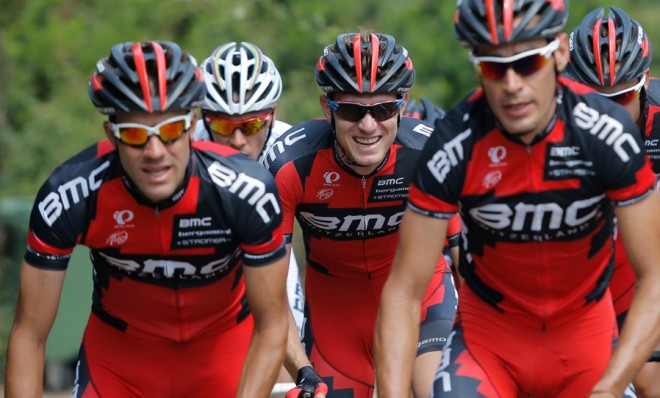Can anyone win the Tour de France without cheating?
Nope, says Lance Armstrong


A free daily email with the biggest news stories of the day – and the best features from TheWeek.com
You are now subscribed
Your newsletter sign-up was successful
On the eve of the 100th Tour de France, disgraced cyclist Lance Armstrong suggested that the race was so tough you had to cheat to win it.
In an interview with French newspaper Le Monde, Armstrong said he never would have won his record seven-straight Tour titles without doping — and suggested that no one else could win without doing the same.
"The Tour de France? No. Impossible to win without doping because the Tour is an endurance event where oxygen is decisive," he said.
The Week
Escape your echo chamber. Get the facts behind the news, plus analysis from multiple perspectives.

Sign up for The Week's Free Newsletters
From our morning news briefing to a weekly Good News Newsletter, get the best of The Week delivered directly to your inbox.
From our morning news briefing to a weekly Good News Newsletter, get the best of The Week delivered directly to your inbox.
"To take one example, EPO [erythropoetin] will not help a sprinter to win a 100m but it will be decisive for a 10,000m runner," he added, referring to a hormone that boosts production of oxygen-carrying red blood cells, thus upping a users' physical endurance. "It's obvious."
Armstrong's comments proved immediately controversial, not just because it thrust his tainted name back into the spotlight, but because it sparked a debate about verb tense. Following the interview's publication, Armstrong accused the paper of misquoting him and said he meant that the Tour was impossible to win without cheating, not that it still is impossible to win honestly.
Armstrong has had a tense relationship with Le Monde since 1999, when the paper reported that corticosteroids were found in his urine during his first Tour de France victory. At the time, Armstrong called the report "vulture journalism."
Pat McQuaid, head of the International Cycling Union (UCI), said Armstrong's latest remarks did "absolutely nothing to help cycling," and defended the integrity of the sport.
A free daily email with the biggest news stories of the day – and the best features from TheWeek.com
"The culture within cycling has changed since the Armstrong era and it is now possible to race and win clean," he said.
PED use was so prevalent in years past that all of the second place finishers from Armstrong's Tour wins, who stood in line to claim victory once the UCI vacated his results, have since been linked to PEDs themselves. Seven of the top 10 finishers in the 2003 Tour de France alone have all confessed to, tested positive for, or been suspected of doping.
The UCI stripped Armstrong of his seven Tour titles last year, claiming a mountain of evidence proved not only that he took banned substances, but that he was a "kingpin" who orchestrated widespread doping among team members, too. After years of furious denials, Armstrong admitted in January to having taken PEDs during his unprecedented career, saying it was "part of the job" of being a pro cyclist.
Armstrong's latest remarks come the same week that his former nemesis and fellow Tour winner, Jan Ulrich, admitted for the first time to blood doping during his career.
Jon Terbush is an associate editor at TheWeek.com covering politics, sports, and other things he finds interesting. He has previously written for Talking Points Memo, Raw Story, and Business Insider.
